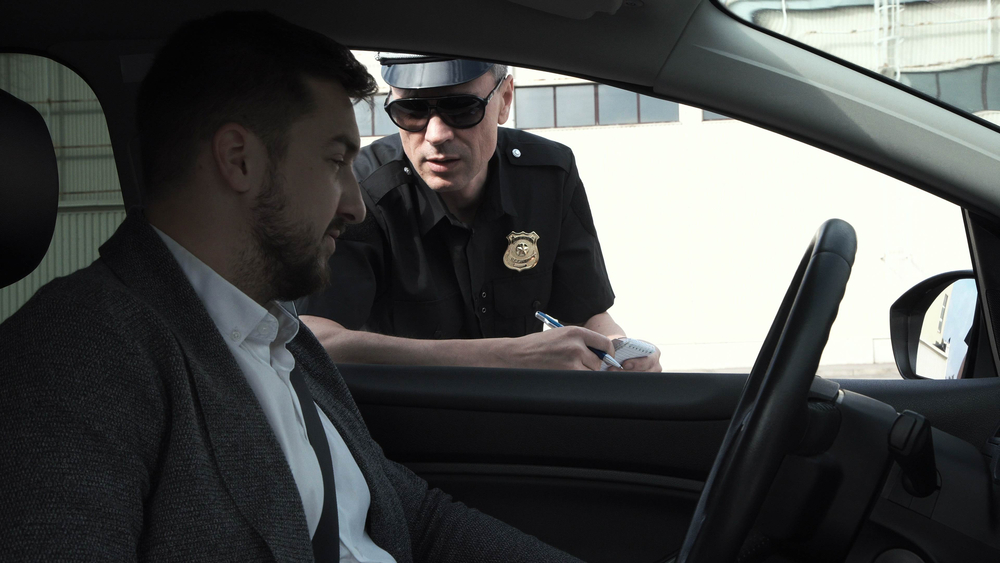A run-in with the law is something we all want to avoid, but unfortunately, it does happen. If you have been arrested by the police, or believe you may be in the future, it is important you understand your rights under Missouri federal and state law. Call Combs Waterkotte at (314) 900-HELP. This article will help you fully understand your rights, and what you should do to exercise those rights should you need to.
About the Right to Remain Silent: the Miranda Rights
The right to remain silent (Miranda rights) was introduced to stop law enforcement from forcing confessions out of people. Ernesto Miranda was a poor man living in Phoenix (AZ) in 1963 who was brought in to take part in a police lineup. A woman who had been kidnapped and raped identified Miranda as the man she believed perpetrated the crime.
He was immediately arrested and questioned for two hours, without informing him of his Fifth Amendment right against self-incrimination, or of his Sixth Amendment right to the assistance of a criminal defense attorney.
Miranda confessed in writing to the crimes, and his statement said that he was aware of his right against self-incrimination. When the case went to trial, the prosecution used his confession to obtain a conviction, and he was sentenced to 20 to 30 years in prison on each count.
Later, Miranda appealed his case to the Arizona Supreme Court, and his criminal defense attorney argued that his confession should have been excluded because he had not been informed of his rights, and no attorney had been present during his interrogation. The officers involved admitted they had not explained his rights to him. The state argued that because Miranda had been convicted of a crime in the past he already knew his rights, and Arizona Supreme Court upheld the conviction.
A few years later, Miranda’s case was heard at the Supreme Court of the United States, along with three other similar cases. The court ruled in Miranda’s favor, however, the State of Arizona retried Miranda without his confession, and he was convicted and sentenced to 20 to 30 years in prison.
Because of this case, all law enforcement officers are required to read the rights below to criminal suspects when they are taken into custody:
- You have the right to remain silent.
- Anything you say can and will be used against you in a court of law.
- You have the right to an attorney.
- If you cannot afford an attorney, one will be appointed for you.
If your Miranda rights are not read to you, any statements you make can not be used as evidence against you.
To invoke your Miranda rights, simply tell them: “I invoke my right to remain silent and I wish to speak with my attorney.” Don’t speak again until your St. Louis criminal defense lawyer arrives.
Your Fifth and Sixth Amendment Rights
The Fifth Amendment states that no person “shall be compelled in any criminal case to be a witness against himself”.
The Sixth Amendment states that “in all criminal prosecutions, the accused shall enjoy the right … to have the assistance of counsel for his defense”.
What Should I Do if I’m Stopped for Questioning in Missouri?
If you are stopped for questioning, stay calm, keep your hands where the officer can see them, and don’t resist or run, even if you believe your rights are being violated. If you don’t want to answer their questions, ask them if you are free to leave, and if they say yes, calmly walk away without saying anything that may provoke the officers. If they say no and you are under arrest, ask them why, and then follow the protocol listed under “What should I do if I’m arrested?” further down this page.
You are always allowed to exercise your right to remain silent, even if they are only questioning you, and they cannot punish you for staying silent. If you want to use your right to remain silent, tell them calmly that you are doing so. If they ask you to identify yourself, do so, as local law may require you to do this.
What Are My Rights if I’m Stopped in My Vehicle in Missouri?
If you are flagged down by a patrol car, drive until you find the first available safe place to do so and turn off your engine. Next, turn on your internal cab lights, roll the window down a little and place both hands on the wheel where the officer will be able to see them. When asked to do so, show them your driver’s license, registration, and proof of insurance. If they ask to look around your vehicle, you can refuse to give consent. If they believe your vehicle may contain evidence, however, they can search your car without your consent. Both you and any passengers have the right to remain silent, and if you are a passenger, you can ask if you are free to leave. If they say yes, either wait calmly or get out and walk away.
I Think I’m Going to Be Arrested, What Should I Do?
If you believe you are going to be arrested by the police, the first thing you should do is continue to read this article through to the end and absorb all the information you need to know. Then, prepare yourself and your family or friends on what to do, should you be arrested.
Make sure you memorize the phone numbers of your criminal defense lawyer (or one who may defend you) and those of your family who can help you while you are in jail. If you are the sole guardian of any children or require daily medicine (for example, insulin), put emergency plans in place so that your children go to someone you trust, and someone you know can provide you with the medication you need.
What Should I Do if I’m Arrested?
If your hunch is right and the police come to arrest you, exercise your right to remain silent, and ask for a lawyer immediately. Do everything you can to go willingly, even if you believe the arrest is wrong or unfair, as this will not only help your case but protect you from harm.
If you have properly prepared, you may have a criminal defense lawyer ready to defend you, but if not, they have to supply you with one. If you can’t pay for a private lawyer, the lawyer you are provided with will be done so free of charge. Don’t say anything, sign anything, or make any decisions before your lawyer is present to advise you.
What if Officers, Immigration or FBI Agents Come to My Home?
If the officers don’t have a warrant allowing them into your home, you do not have to allow them access. If they say they have a warrant, ask them to hold the warrant up to a window so you can see it.
If they have a search warrant, they are allowed to enter the address listed on the warrant, but they are only allowed to search for the items listed.
An arrest warrant allows them to enter the home if they believe the person listed on the warrant is inside, regardless of whether it is their permanent address.
A warrant of removal or deportation (ICE warrant) does not allow officers to enter your home without your consent. You do not have to discuss your immigration or citizenship status with them or answer any questions. However, if an immigration agent asks to see your papers, you must show them if you have them with you.
Remember, even if they have a valid warrant, you have the right to remain silent. If you want to speak to the officers, step outside your home and close the door behind you.
I Believe My Rights Were Violated, What Should I Do?
If you believe you were wrongly arrested, treated, or if any of your rights were violated, do as much as you can to document what occurred. If you can, include officer badge numbers, patrol car numbers, where the officers were from, and contact information and statements from witnesses. Then, file a written complaint with the agency’s internal affairs or civilian complaint board. If you wish to do so, you can do this anonymously.
As you can see, it’s vital you understand the power of your Miranda rights and invoke them whenever you feel it is necessary to do so. Never make a statement to a police officer prosecuting you without a criminal defense attorney present. If you believe you are at risk of being arrested in the St. Louis Metro area, call us at (314) 900-HELP or contact us today for a free consultation, and we will be there to support you 24 hours a day.







